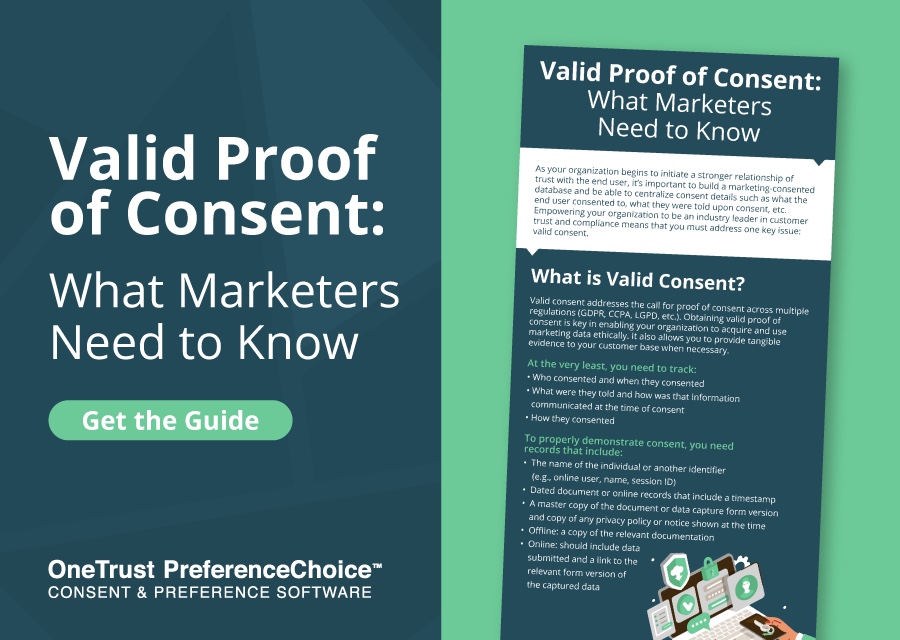Valid proof of consent: What marketers need to know
By OneTrust
Data, trust, and compliance are three big focus areas for marketers. In terms of consent, obtaining it from your audience is critical to executing marketing activities in a privacy-centric way – and so is proving you’ve obtained that consent.
Consent matters not only for staying compliant with global privacy regulations, including the GDPR, but also for establishing a relationship of trust between your brand and your customer base. As your organization begins to initiate a stronger relationship of trust with the end user, it’s important to build a marketing-consented database and be able to centralize consent details such as what the end user consented to, what they were told upon consent, etc. Empowering your organization to be an industry leader in customer trust and compliance means that you must address one key issue: valid consent.
What is Valid Consent?
Valid consent addresses the call for proof of consent across multiple regulations (e.g. GDPR, CCPA, LGPD, etc.). Obtaining valid proof of consent is key in enabling your organization to acquire and use marketing data ethically. It also allows you to provide tangible evidence to your customer base when necessary. Many organizations today have consent stored as a simple yes or no flag with a timestamp in their CRM or marketing automation tool, which is not considered fully compliant. Multiple regulations provide guidance on keeping valid proof of consent, but you will need to at the very least track the following:
- Who consented and when they consented
- What they were told at the time of consent
- How they consented
Many marketers rely on a simple checkbox and a yes/no answer for consent. However, to properly demonstrate consent, you need records that include:
- The name of the individual or another identifier (e.g. online user, name, session ID)
- Dated documents or online records that include a timestamp
- A master copy of the document or data capture form Version and copy of any privacy policy or notice shown at the time
- Offline: a copy of the relevant documentation
- Online: should include data submitted and a link to the relevant form version of the captured data
To learn what marketing activities require consent and what regulations apply, download this free infographic from OneTrust Consent and Preferences.

